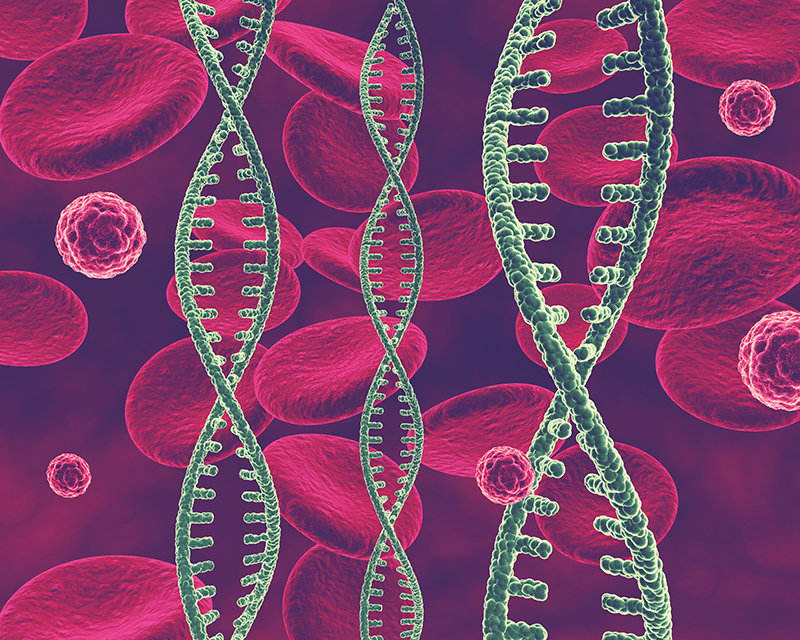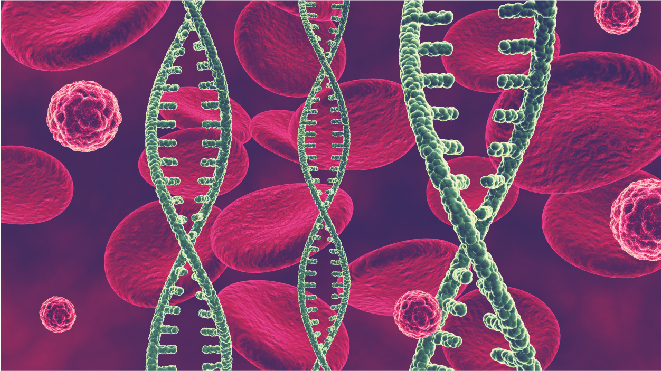Radiation therapy or radiotherapy treats blood cancers by using radiation of high wavelength to kill the cancer cells and shrink tumors. Radiation can also treat the blood cells that have reached the brain and the spinal fluid. The treatment is also used to reduce pain caused by blood cancers. Also, the type of radiation used depends on the type of cancer. The main objective of this treatment is to damage the cancer cells and restrict their growth and division. In this article, we will read about the side effects of radiotherapy in the treatment of blood cancer.


Radiation of high wavelengths and frequencies aim to the body, which kills the cancer cells but has significant side effects on the patient. The side effects depend on the radiation levels, tolerance, and age of the patient and the medication prescribed. They damage healthy blood cells during the treatment.
The side effects due to radiotherapy for blood cancer generally last for a few months after treatment, except for a few with which the patient has to deal for his/her entire lifetime. The potential and most common side effects include:
Skin problems:
Depending on which part of the body is under radiation treatment, skin problems occur. Generally, the following are the side effects can:
- Dryness
- Blistering
- Itching
- Peeling of skin
These last for a few weeks only after the treatment has finished. However, if these skin problems persist, proper diagnosis may be required.
Fatigue:
Fatigue is a feeling of tiredness. When the body experiences high radiation, the patient might feel tired. The patient needs to take proper rest during the treatment.
Along with the above general side effects, a few other side effects might occur depending on the type and location of the radiotherapy. These include the following.
Head and neck:
When radiation is applied to the patient near the head and the neck, the facial region, or around the neck, the possible side effects are:
- Difficulty in swallowing
- Dry mouth
- Mouth and gum sores
- Lymphedema, a type of swelling
- Nausea
- Tooth decay
- Hair loss
Chest:
When radiation aims at the chest, the breast and shoulder area are most affected. The shoulder area does not experience higher side effects, but the chest being a sensitive organ can have the following potential side effects:
- Radiation fibrosis (permanent scarring of lungs)
- Soreness of breasts or nipples
- Shortness of breath
- Shoulder stiffness
- Fullness of chest
- Cough
- Fever
Stomach/abdomen
When the stomach or the abdomen undergo radiation, digestive tract problems could occur. These include:
- Nausea
- Vomiting
- Diarrhea
Kidneys
Kidneys are one of the most sensitive organs and cannot defend themselves from radiotherapy. Due to this, radiation near the kidneys can cause:
- Renal failure: The inability of the kidneys to filter out the waste from the blood.
- Improper filtration of waste
Central Nervous System
Radiation therapy can cause many abnormalities in the central nervous system, which can lead to:
- Neurological disorders
- Abnormal behavior
- Confusion
- Dizziness
A decrease in blood cells
Radiotherapy involves the elimination of cancer blood cells. However, in this procedure, healthy blood cells are also affected. The effects may cause a decrease in:
- red blood cells would lead to anemia
- white blood cells that make the patient prone to infections
- and finally, the platelet count, making the chances of easy bruising and difficulty in the clotting of blood.
Pelvis
Radiotherapy at the pelvis or when the pelvis experiences radiotherapy, the radiation could lead to various effects. Most of these effects differ in men and women.
The most common effect is infertility.
1. Effect in men
- Erectile dysfunction: Radiotherapy can lead to an inability to get or maintain an erection.
- Lowered sperm count: The treatment also promotes a decrease in the sperm count.
2. Effect in women
- Menstrual changes: Radiation can lead to irregular menstruation.
- Menopause: Radiotherapy can lead to menopause with prior symptoms of vaginal itching, burning, and dryness.
- Infertility: Women lose the ability to conceive babies post-radiotherapy.
Heart
When the heart receives radiation, that could affect the normal functioning of the heart. The effects on the heart include:
- Variation in blood pressure
- Disturbance of heart rhythm
- Increase or decrease in pulse
- Inflammation of arteries
Hair loss
The hair follicles of a human are susceptible and cannot survive the high frequencies and wavelengths of the radiation. Due to this, patients experience a lot of hair loss during and post-radiotherapy.
However, the hair loss does not occur evenly. It instead occurs in patches. Maximum hair loss occurs at the radiated locations only, but it can promote overall hair loss as well. Hair loss due to radiotherapy does not grow back, and the scalp becomes light pinkish.
Coping with side effects:
The intensity of side effects can be reduced by monitoring their symptoms and diagnosing them before they affect the body severely. Medication during the treatment has must follow a strict regime. Overall health maintenance is also an essential aspect of avoiding the side effects caused by radiation.
Patients are not advised to go in extreme weather conditions or wear tight clothes, especially in the treatment area after the treatment.
A strictly monitored follow-up care plan is mandatory.

